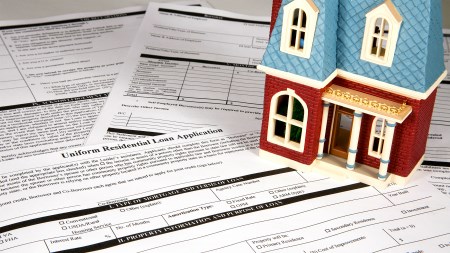There is no doubt that homeownership plays a vital role and has become a number one priority for many South Africans, says Adrian Goslett, CEO of RE/MAX of Southern African.
“In many ways homeownership can enhance people’s lives and many have placed a high importance on owning their own property because of this” says Goslett. “For one, those who own a home in a community will often be more involved and plant deeper roots within that community. It also provides a sense of stability as well as freedom in terms of decisions regarding the property that belongs to them.”
He notes that while homeownership has become important, current economic conditions and the housing market has become far more complex than in previous years. He offers some must-know tips for reinforcing some of the best practices to get potential property buyers home-ready:
Consult with a real estate professional
According to Goslett, prospective buyers can benefit from the advice of reputable property professionals to assist them with making their dream of homeownership a reality. Whether it is a local real estate agent who has knowledge of the area you want to purchase in, or a mortgage originator such as Betterbond, a professional working in the property sector daily will have an effective understanding of the current market. They will be able to assist in providing valuable insight by determining your affordability, setting realistic expectations and helping to address some market related questions and the complex process of purchasing a home.
Affordability is the key that opens the door to homeownership
Goslett says that potential buyers will have to objectively assess their financial well-being and their lifestyle and determine what they can afford over the long term. Due to the cyclical nature of the property market, an average minimum period of nine years is required to see the best possible return on investment. It is not just the bond repayments that a homeowner will have to afford, but the general monthly maintenance costs of running the household as well. “Establishing a relationship with a property professional that can assist buyers in identifying monthly repayment goals, a target purchase price and the types of loans that they can qualify for, based their current financial situation,” he says.
Homeownership starts with a savings plan
Goslett says that in today’s market buyers will need to have cash on hand before they decide they are ready to buy. Once a buyer has settled on their target purchase price and determined what they can afford, they will need to have a portion of the purchase in cash for a deposit and any other additional costs associated with purchasing a home. On average 60% of all home applicants require a deposit to successfully secure the necessary finance to purchase a property. Currently the average deposit required by repeat buyers is approximately 20% of the purchase price of the home and 12% for first-time buyers. “This is a relatively large percentage to have in cash, so those wanting to purchase a property will need to start saving as early as possible,” says Goslett. “First-time and repeat homebuyers will also need cash reserves for less visible expenses, such as transfer costs, moving costs, home repairs, renovations and planned upgrades.”
Understand and improve your credit rating
Why is it important for potential homeowners to improve their credit score? Goslett says that aside from the fact that banks use this score to help establish credit worthiness, it will also have an impact of the interest rate that the homeowner gets from the bank on their mortgage. “This makes it imperative for potential buyers to have a clean record and keep it clean,” he says. “Consumers are entitled to obtain a free copy of their credit report from each credit bureau on an annual basis. Prospective buyers should obtain these reports and address any discrepancies and take corrective action to improve their score if it’s below par.”
Pay down debt and avoid making major purchases
According to Goslett, potential buyers should try and pay off any debt they have before applying for home finance as having more deposable income will be viewed favourably by financial institutions. He notes that having less debt will also assist the homeowner to meet the monthly bond repayments. When considering homeownership, it is also vital to avoid making any large purchases such as buying a new car. Goslett says that by avoiding these purchases it will ensure that cash reserves remain high, which in turn will show the lender that the buyer will be able to service the mortgage debt more easily.
Understand your micro-local real estate market
Goslett says that being financially prepared and buying at the right time can save homebuyers money. He notes that this is due to the seasonality and trends that certain markets experience, which can be caused by a variety of elements such as the change in weather or holiday seasons. Watching the local markets and understanding the right time to purchase a property will give the homebuyer the upper hand in negotiating in the current market.
“Navigating the current housing market may be a reasonably intricate process, however being prepared and working with a reputable property professional will ensure that the buyer’s dream of owning a home will be a relatively smooth and positive experience to remember,” Goslett concludes.



